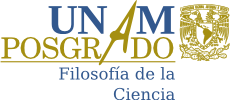Los Posgrados de Filosofía y Filosofía de la Ciencia invitan a la conferencia
"Normativity, Logic and Legal Reasoning"
del Dr. Shahid Rahman
Universidad de Lille, Francia
Lunes 7 de marzo de 9:30 a 10:30 horas
Sala José Gaos
Instituto de Investigaciones Filosóficas
El resumen (en inglés) aparece a continuación:
The main point of our talk touches the notorious dilemma of Jorgensen-, considered by many as the most challenging and toughest problem in relation to the understanding of the interaction between logic and norms in general and of legal reasoning and legal norms in particular. The dilemma starts with the remark that norms are not bearers of truth, they are not propositions but prescriptions of actions. Notice that adding a deontic operator, such as “it is obligatory that” that yields a proposition from a proposition does not solve the problem unless we say what the proposition is about – the idea that a deontic operator makes of a proposition a generic names for set of actions has been proven to be a failure –So no classical or non-classical logic can in principle solve the dilemma without rendering a conception of what a normative proposition is. Now, we certainly would like to avoid the further extreme of the dilemma that drive us to absurd claim that norms in general and legal norms in particular do not allow any kind of reasoning : If every one has to pay his taxes, This also applies to me.
Thus, the task is to study the interface between norms and propositions about norms in such a manner that legal reasoning has the place in Law that it in fact has, despite the fact that we assume that norms are not bearers of truth, but entities with ontological status, created by the will of some juridical competent authority. Those entities can make propositions true, in a similar way as facts can make empirical propositions true: normative propositions are those propositions that are made true by norms. Moreover, we need also to consider the kind of normativity involved in those acts by the means of which we conclude propositions from other propositions (both made true by, in our case-study- legal norms). But this normativity is an inferential one
The dialogical frame assumes that that logic is normative, and that inference and norms are tight up by the interplay of commitments and entitlements triggered by an assertion. When I assert a proposition I am committed to give reasons for it and I am entitled to bring forward the reasons the other already provided. Thus, my claim amounts to the following:
The normative conception of logic combined with a framework where propositions are conceived as types instantiated by norms, brings us out of the dilemma. Normative propositions are not reducible to deontic operators!
Inicia: 7 de Marzo de 2016 a las 09:30.
Termina: 7 de Marzo de 2016 a las 10:30.
Publicado el 3 de Marzo de 2016 a las 15:59














